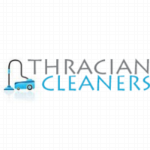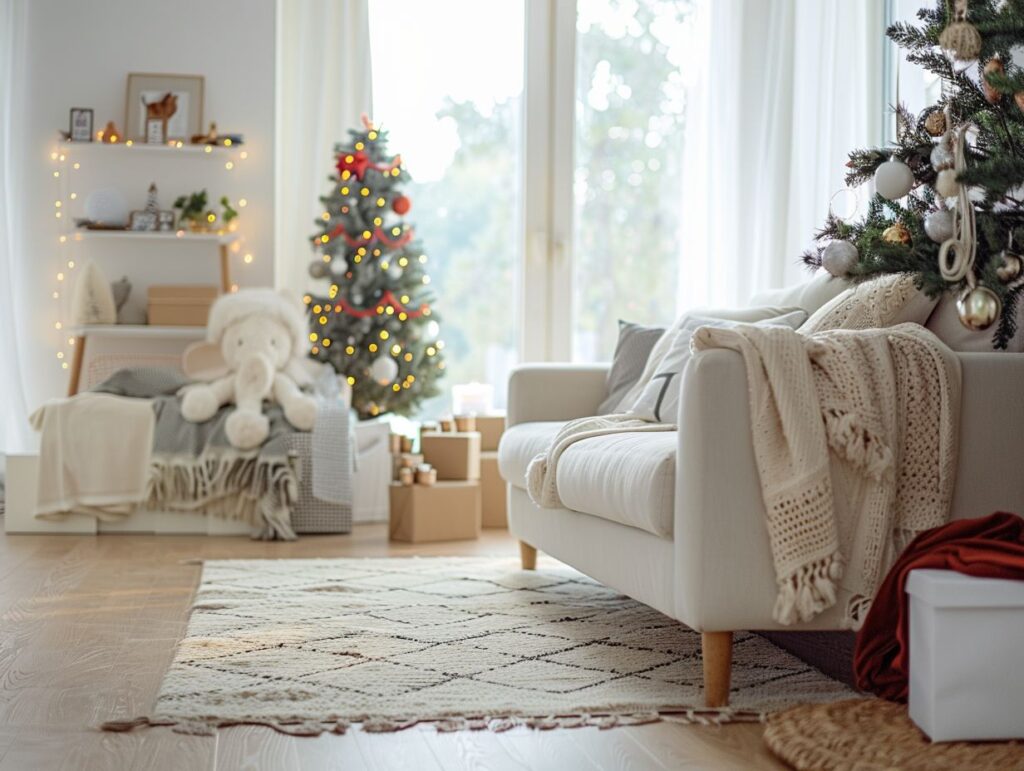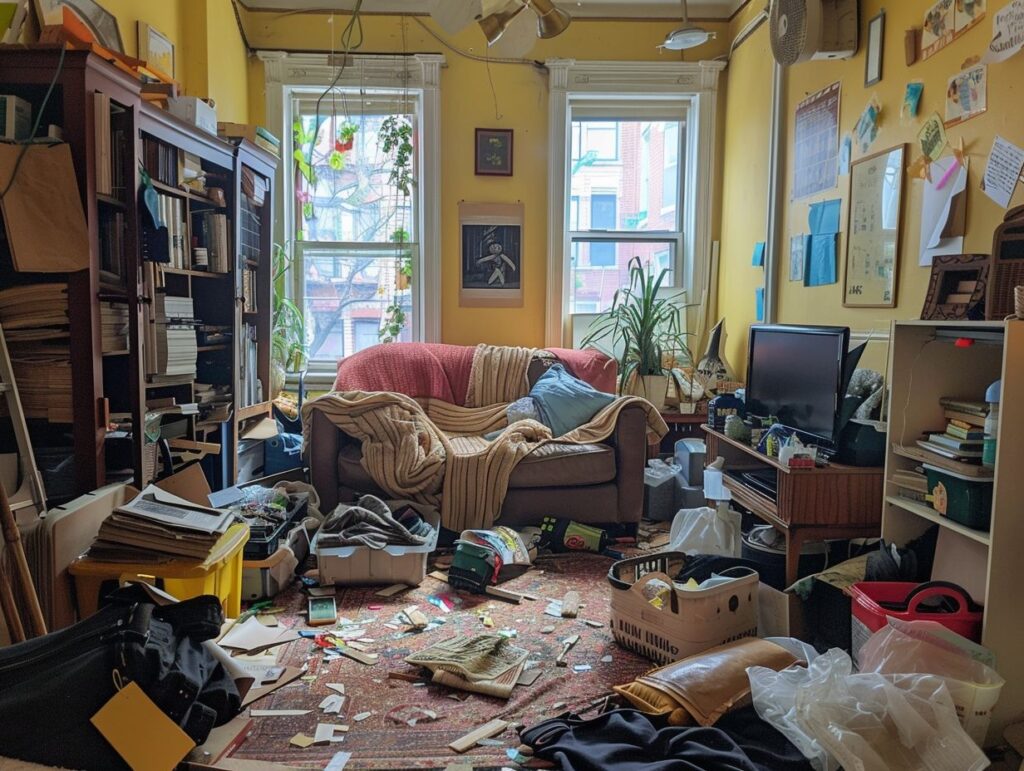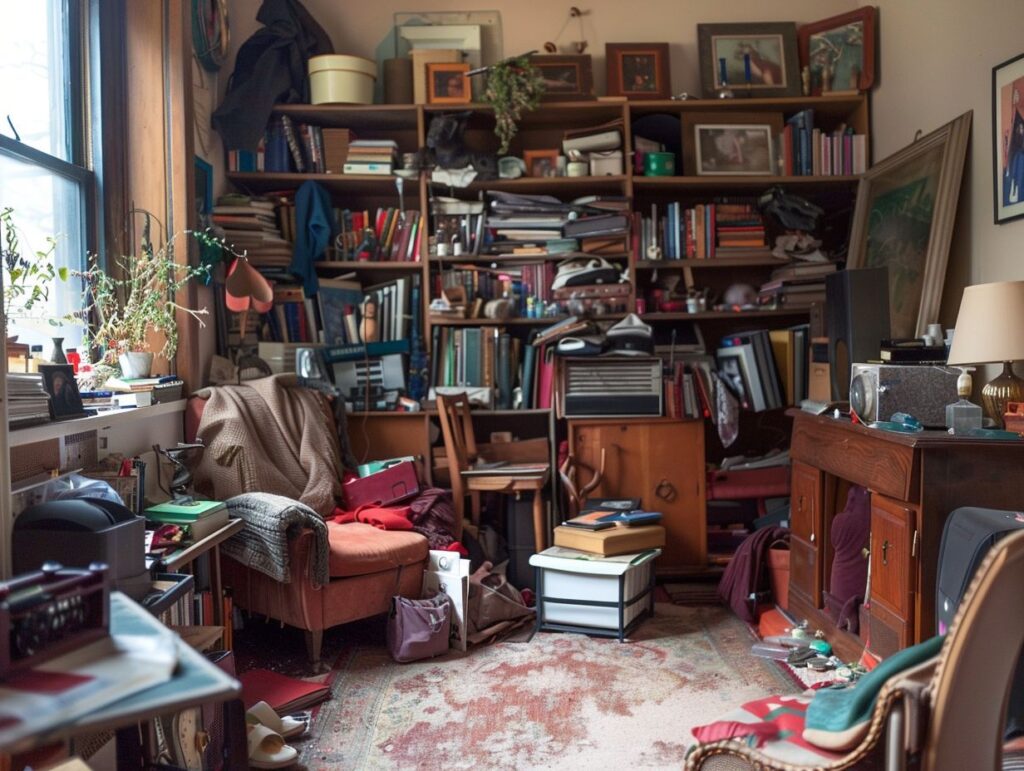When you’re moving out of a rental property, it can feel like jumping through hoops. From packing up your stuff to figuring out all the logistics, there’s a ton on your plate. However, one thing that often slips our minds is how crucial it is to clean and maintain the property before saying goodbye to the landlord.
In this article, we’ll discuss the most common cleaning slip-ups tenants make when they move out and give you tips on how to avoid them. We’ll cover everything from deep cleaning to fixing up damages, covering all the bases to make sure your move-out goes off without a hitch. So, if you’re gearing up to leave your rental place, keep reading for some helpful tips and tricks.
Mistakes Tenants Make When Moving Out
When you’re moving out of a rented property, it can feel like a total rollercoaster of stress. And let’s be honest: tenants often goof up and make mistakes that can seriously tick off landlords. So, knowing the common slip-ups tenants tend to make when moving out is critical to keeping things chill and holding onto that positive relationship with your landlord.
One classic goof is when tenants slack off on property maintenance before saying their goodbyes. Skipping out on fixing up minor repairs or damages could mean money coming out of your security deposit.
Then there’s the ever-popular blunder of not cleaning enough. Leaving behind a mess of dirt, grime, or personal stuff can easily spark disagreements during that final inspection.
Oh, and let’s not forget the importance of keeping the landlord in the loop about your moving plans. Bad communication or forgetting to give proper notice can stir up all kinds of trouble.
To wrap things up smoothly, play by the rules of your tenancy agreement. Stay on top of fulfilling your lease obligations, and remember to hand over those keys on time. It’s the golden ticket to a successful end to your tenancy agreement.
Overview of Common Mistakes
You want to be careful when moving out of a rental property to avoid any issues with your landlord that could affect getting back your security deposit. Knowing about these common mistakes is essential to avoid unnecessary problems and keep your relationship with your landlord positive.
One common slip-up is not cleaning the property thoroughly before you leave, which could mean your security deposit gets dinged for professional cleaning. You might argue over damages if you don’t document the property’s condition at the beginning and end of your tenancy. Poor communication about move-out dates and procedures can lead to mix-ups and delays.
Taking charge of these things and paying attention to the details can make the moving-out process smoother and ensure a hassle-free transition.
Not Deep Cleaning
One of the most common mistakes when moving out is not giving the place a deep clean. It’s not just about skimming the surface; you’ve got to get into all the nooks and crannies. That means cleaning appliances, cupboards, floors, walls, skirting boards, light fittings, windows, and carpets—the whole kit and caboodle.
Proper deep cleaning before you move out is about following the tenancy and showing some care for the property. Ensure you’re using the appropriate cleaning products for different surfaces, like worktops and floors, to prevent damage. And if you’re dealing with stubborn stains, that reliable combination of bicarbonate of soda and vinegar might save the day.
Don’t overlook mould and bacteria attractors like bathrooms and kitchens. Give everything a good hoover, dust, scrub, and disinfect to leave the place looking fresh as a daisy.
Areas Often Overlooked
You might not realise it, but key areas are often overlooked when cleaning a property before moving out. Overlooking these spots can lead to arguments about getting back your security deposit. Regarding cleaning, paying attention to the details is a must.
Make sure you give appliances, cabinets, floors, walls, skirting boards, light fittings, windows, blinds, and carpets a thorough cleaning and deal with any stains, residue, grease, mould, mildew, bacteria, and grime. Don’t forget about the insides of appliances like microwaves, fridges, and ovens—they often get neglected. It’s important to clean them well to get rid of food splatters, grease build-up, and any lingering odours.
And when it comes to cabinets, make sure they’re emptied, wiped down, and sanitised to keep pests and odours away. Those skirting boards can collect dust and dirt, so give them a good scrub. Dust off those light fittings and replace any bulbs that need it. Take care of your carpets by hoovering and steam cleaning them to remove deep-seated dirt. And don’t forget about the windows and blinds – thoroughly clean them to get rid of all that built-up dust and grime.
Not Repairing Damages
Another critical mistake you might make when moving out is neglecting to repair damages to the property. Whether you’re dealing with minor scratches or significant issues, failing to address damages could lead to arguments with your landlord during the inspection. It might even affect the return of your security deposit.
To keep things smooth sailing, it’s in your best interest to make sure any damages from your time living there are fixed up before you move out. By keeping the property in good shape, you’re not only meeting your end of the bargain but also showing respect for the rental property. Bringing in professionals to handle repairs can ensure the job is done right, benefiting both you and making sure the property stays in good condition for the next tenants.
Types of Damages to Address
Before moving out, you need to identify and address various types of damages to avoid disputes with your landlord. Understanding the types of damages to address, from minor wear and tear to significant structural damages, is crucial for a smooth transition and the return of your security deposit.
Common types of damages you should be mindful of include wall scuffs, carpet stains, broken appliances, and plumbing issues. Wall scuffs can be easily overlooked but accumulate over time, impacting the property’s appearance. Carpet stains often require professional cleaning to restore, while broken appliances may need repair or replacement. Plumbing issues, if left unattended, can lead to water damage and mould growth.
By promptly addressing and documenting these damages with your landlord, you can maintain a positive relationship and ensure a hassle-free move-out process.
Not Following Move-Out Procedures
When you’re getting ready to move out of a rented property, it’s essential not to skip the move-out procedures that are typically outlined. Make sure you follow the move-out checklist, rules of tenancy, and communication guidelines that were agreed upon to make the transition smooth and meet the landlord’s expectations.
Adhering to the procedures can avoid potential disputes over security deposits, damages, or cleaning issues. Conducting a thorough final inspection with the landlord to discuss any concerns and ensure both parties are on the same wavelength is essential.
Remember to keep the channels of communication open regarding your move-out date, the new address for the post, and returning keys. This is crucial for a trouble-free handover process and for sustaining a positive rapport with your landlord. Effective communication also aids in efficiently resolving any outstanding payments, utility transfers, and other concluding details.
Importance of Following Guidelines
You need to understand the importance of following move-out guidelines, tenancy rules, and communication protocols to ensure a successful transition when you move out. Complying with these procedures is crucial to meeting your landlord’s expectations and keeping that tenant-landlord relationship positive.
Ensure you stay informed about the rules your landlord or property management has laid out to avoid any misunderstandings or potential disputes. Communication is critical here – it can help you resolve any issues during the move-out process. So, it’s a good idea to give your landlord a heads-up about your plans to move out and have an open chat about any arrangements or inspections that need to happen. Being proactive like this promotes transparency and makes the whole process smoother.
Remember, clear communication also means documenting any agreements or discussions in writing. This will avoid any confusion later.
Not Properly Disposing of Items
When you’re moving out, it’s easy to neglect proper item disposal. If you don’t get rid of rubbish, unwanted stuff, and cleaning materials the right way, you could run into cleanliness problems, maintenance issues, and extra costs.
To avoid these problems, you need to declutter effectively before moving day arrives. Start by going through your things and sorting them into categories: keep, donate, recycle, or throw away. This organised approach reduces the number of things you have to move and ensures you’re dealing with each category responsibly.
Recycle items like paper, plastics, and electrical goods, and take hazardous materials like paint or batteries to the correct disposal locations. Also, remember to pack up your cleaning materials carefully to make the moving process smoother and ensure everything transitions smoothly.
How to Properly Dispose of Items
You need to know the correct way to get rid of stuff when you’re moving out to keep things tidy and follow the property rules. Properly disposing of rubbish, stuff you no longer want, cleaning materials, and tools ensures the transition goes smoothly and the property is left in good condition.
First, go through your belongings and responsibly separate what can be recycled, donated, or thrown away. Place paper, cardboard, plastics, and glass in the recycling bins, and take electronics and hazardous items to the appropriate disposal locations. Donating furniture, clothing, and functional appliances to local charities assists others and reduces landfill waste.
If there’s stuff you can’t recycle or donate, ensure you dispose of it correctly. You can arrange bulk waste collection or take it to a nearby landfill to prevent clutter and environmental damage.
Not Taking Photos Before and After
Remember to take photos before and after moving out to avoid potential issues with property conditions and deductions from your tenancy deposit. Documenting the property’s condition with detailed photos is important to have evidence and maintain open communication with your landlord.
When you capture clear and thorough images, you can effectively display any pre-existing damages or how immaculate the property was when you departed. These photos serve as a visual record, making it simple for both you and your landlord to observe the property’s initial and final states.
For a trouble-free process, consider creating a visual checklist that concentrates on key areas such as walls, floors, white goods, and fittings. Sharing these images promptly with your landlord and discussing any discrepancies can help avoid misunderstandings and ensure a fair refund of your tenancy deposit.
Why Photos are Important
When you’re moving out, it’s essential to take some photos before and after to protect yourself regarding your deposit and the condition of the property. These photos are like evidence to show any damages already there, the level of cleanliness, and your communication with the landlord. It’s all about keeping things clear and making sure everyone is responsible.
Make sure you look at each room, all the electrical appliances, and any fittings to protect yourself from any false claims of damage by your landlord. Get a good camera or use your smartphone (with a good resolution), ensure you have good lighting, and take photos from different angles. Once you have all those photos, organise them neatly in a labelled folder, sorting them by room or specific areas. This way, when it’s time for that move-out inspection, you have everything arranged and ready to show. Presenting these photos during the inspection can resolve any confusion and ensure a fair resolution for both parties.
Not Communicating with Landlord
When moving out, one of the common slip-ups tenants tend to make is not keeping the landlord in the loop. This can lead to misunderstandings, disagreements, and potential headaches when it comes to getting back their security deposit. The key here is to have open and clear communication to make sure everyone’s on the same page, address any concerns, and sort out any disagreements like grown-ups.
By staying open in your conversations, you can update your landlord on when you’re moving out, chat about any damages or fixes needed, and get a clear picture of when you’ll return your security deposit. Being proactive also gives your landlord a chance to provide feedback, handle issues promptly, and ensure the moving-out process goes as smoothly as possible.
Good communication means keeping a record of your chats, being realistic about what to expect, and treating each other respectfully. If you do run into disagreements, it’s best to stay calm. Consider getting a mediator or contacting a tenancy authority for help, and always refer to your tenancy agreement for the rules and guidance.
Importance of Communication
When you’re getting ready to move out of a rented property, it’s crucial to keep the lines of communication wide open with your landlord. This will help ensure the whole process goes smoothly, and any issues can be addressed immediately. Be clear about what you expect, who’s responsible for what, how to fix things if they go wrong, and what might be reimbursed to you, all to keep that tenant-landlord relationship on good terms.
You must talk openly and honestly with your landlord to avoid any mix-ups or disputes when you’re moving out. Chat about how to handle the move-out steps, what cleaning needs to be done, and how your deposit refund will work to keep things drama-free.
And remember, if there are any damages or problems, don’t wait to let your landlord know; take photos or write down what’s happening. Everything in writing, like emails or signed documents, can be a lifesaver when resolving disagreements and ensuring everyone’s rights are protected.
Not Returning Keys and Security Deposits
When you’re moving out, you must be on top of returning keys and security deposits if you want to avoid major headaches. Not doing so can lead to losing money, getting into arguments, and causing issues with your landlord. You must promptly hand back those keys and security deposits to wrap up your tenancy and ensure everything goes smoothly.
As you’re packing up and getting ready to move out, remember to stick to the procedures laid out in your tenancy agreement. Follow the instructions on returning your keys exactly as your landlord has outlined – whether that means giving them directly to your landlord or a property manager or dropping them off at a specific spot. Also, be clear on when you should expect to get your security deposit back. Keeping the lines of communication open with your landlord during this process is vital. Taking these steps seriously can help you avoid unnecessary stress and make your exit from the rental property a breeze.
Steps to Ensure Return of Deposit
To ensure you get that security deposit back, you must follow specific steps when moving out. Return the keys, take care of any property conditions, and keep the communication flowing with your landlord. Stick to the deposit return process in your tenancy agreement for a smooth resolution.
Before you start packing boxes, delve into the nitty-gritty of your tenancy agreement. Check out the terms related to getting your security deposit back. One big task is to snap photos or videos of the rental unit to show its condition when you leave. If you notice any issues or damages, don’t wait around. Let your landlord know straight away. This proactive approach can prevent misunderstandings and simplify the refund process.
Keep a record of all your conversations and dealings about that deposit refund. It could come in handy if things get sticky.
Not Leaving a Forwarding Address
Neglecting to leave a forwarding address when you move out is a common mistake that can lead to missed communications, delays in getting your security deposit back, and potential issues with your landlord. It’s crucial to provide a correct and updated forwarding address so your landlord can contact you and make the return process smoother.
Having the correct forwarding address is about more than just ensuring you receive important messages about your tenancy. It also speeds up the process of getting back your security deposit. By keeping your contact information updated and staying in touch with your landlord, you ensure the final stages of your tenancy agreement go smoothly.
A valid forwarding address is crucial to fulfilling your responsibilities as a tenant and making the renting process efficient for you and your landlord.
Why a Forwarding Address is Necessary
When you’re moving out, remember to leave a forwarding address to keep the lines of communication open with your landlord. This helps ensure you receive your security deposit refund and critical updates. A valid forwarding address allows your landlord to send you any necessary paperwork and resolve any remaining issues efficiently.
Your forwarding address is essential for receiving post-tenancy documents, like final account statements and lease agreements. By providing this information, you help your landlord keep you informed about your rights and responsibilities even after you’ve left the rental property.
Keeping your contact information up to date and following the rules of your tenancy makes the transition smoother and builds trust and responsibility between you and your landlord.






